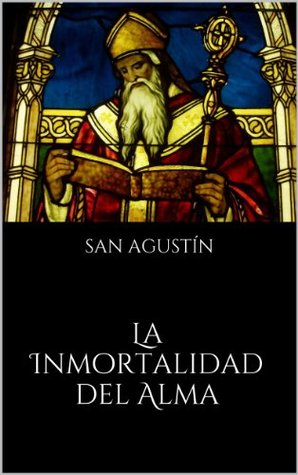- Bible
- Read the Bible
- Bible Versions
- Verse of the Day
- Reading Plans
- Verses by Topic
- Books of the Bible
- Bible Images
- Study
- Commentaries
- Concordances
- Dictionaries
- Encyclopedias
- Sermons
- Bible Atlas & Maps
- BP Wiki
- Devotionals
- Today's Devotionals
- Light of the World
- All Devotionals
- Inspirational Quotes
- More
- Picture Quotes
- Videos
- Inspirational
- Bible Study
- What The Bible Says
- Bible Q&As
- Daily Bread
- Bible by Genre
- Bible Stories
- Random Bible Verse
- Community
- Store
La Inmortalidad del Alma
by Augustine
Las ideas eternas están en Dios y son los arquetipos según los cuales crea el Cosmos. Dios, que es una comunidad de amor, sale de sí mismo y crea por amor mediante rationes seminales, o gérmenes que explican el proceso evolutivo que se basa en una constante actividad creadora, sin la cual nada subsistiría. Todo lo que Dios crea es bueno, el mal carece de entidad, es ausencia de bien y fruto indeseable de la libertad del hombre.
Agustín también reflexiona sobre el tiempo desde la perspectiva de la conciencia subjetiva. El interior del hombre, dotado de memoria, está disperso entre el pasado y el futuro y anhela lo imperecedero. Es a través del examen de la propia trayectoria existencial y la introspección en la propia alma, donde Agustín expresa sus convicciones.
Agustín también reflexiona sobre el tiempo desde la perspectiva de la conciencia subjetiva. El interior del hombre, dotado de memoria, está disperso entre el pasado y el futuro y anhela lo imperecedero. Es a través del examen de la propia trayectoria existencial y la introspección en la propia alma, donde Agustín expresa sus convicciones.
BUY NOW
Kindle Edition, 20 pages
Published August 7th 2013 (first published January 1st 1977)
© 2026 Bibleportal.com All rights reserved.

Aurelius Augustinus - more commonly "St. Augustine of Hippo," or simply "Augustine" - was a philosopher and theologian, and one of the most important figures in the development of Western Christianity. He framed the concepts of original sin and just war. Augustine was one of the most prolific Latin authors in terms of surviving works, and the list of his works consists of more than a hundred separate titles.
Augustine took the view that the Biblical text should not be interpreted literally if it contradicts what we know from science and our God-given reason. Many Protestants, especially Calvinists, consider him to be one of the theological fathers of Reformation teaching on salvation and divine grace.
... Show more